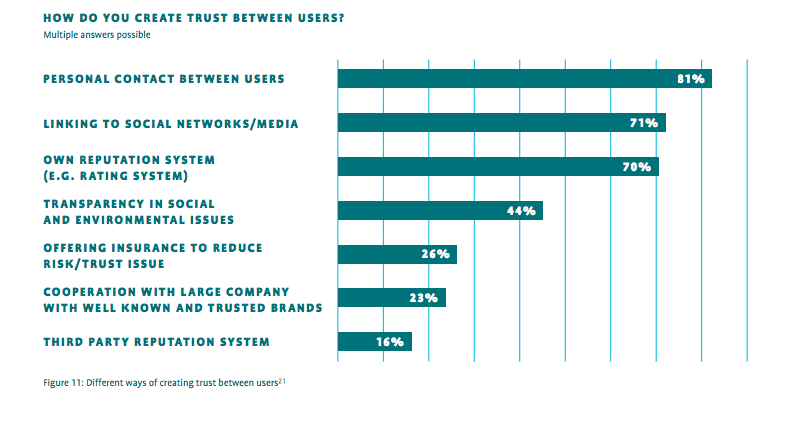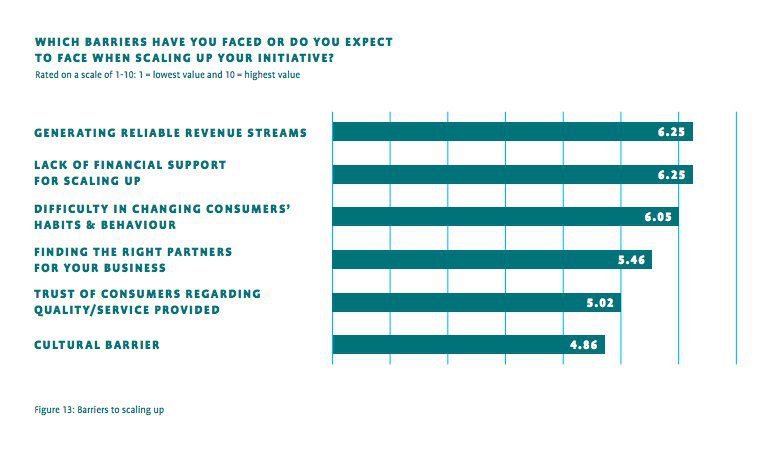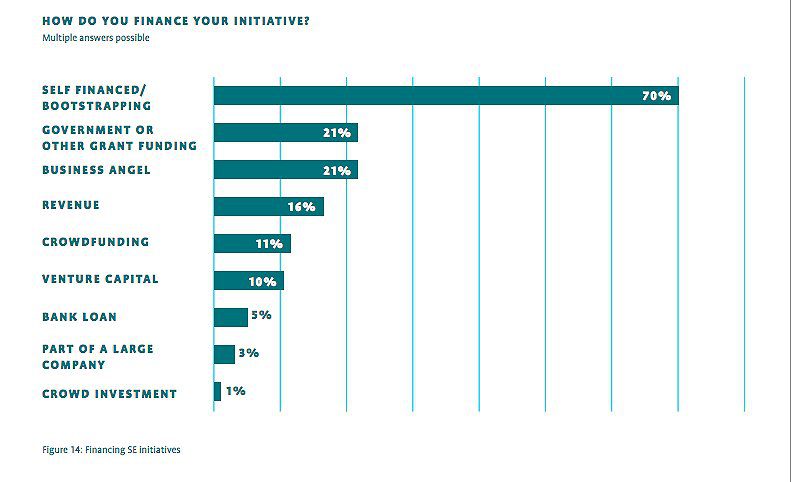
Report on a global survey
The sharing economy has grown up tremendously quickly and is still evolving. At the current time it is helpful to understand the factors that enable success for organisations operating within this sector. This will help other organisations to learn and grow based on analysis of what has happened with other organisation in the sector. It is useful to understand not just success factors but also potential barriers that can hold back businesses operating in the sharing economy. Understanding business models in this sector is also of value. Learning about all of this is useful in building sustainable businesses that can stand the test of time.
A collaborative report, developed in 2015 by a number of authors and contributors from the CSCP, Columbia Business School, Akatu, Ouishare and shareable aims to do exactly that. The report examines seven key areas that are derived from survey data gathered. The survey was administered online between March and June of 2014 to executives and managers from 110 sharing economy initiatives. This included organisations operating in North America, Europe and Latin America. It also included both profit and not for profit organisations. The research was further supported by carrying out interviews with experts and thought leaders in this field.

It was found that the sharing economy largely emphasises target markets located in urban areas, and millennials are the main demographic of focus. It is difficult to build business models in rural areas in these types of organisations due to the low numbers of people living there. There are few initiatives for elderly people. As well as this finding it was identified that building a critical mass of users is of incredible importance to the success of sharing economy businesses. This critical mass needs to be comprised of those that offer something to share and those that want to share what others have. Integral to this was found to be the need for building trust between the different kinds of users. Indeed, trust is of high strategic importance, and as the report states:
“Letting users have personal contact beyond online interaction and reputation systems is regarded as essential for creating trust among users.”
However, it was also identified that most sharing economy systems do have built in reputation systems that allow users to be able to see for themselves who is more trustworthy and reliable, both from the sharer and person sharing’s perspective.

Additionally, tied to the concept of critical mass is that of the need to scale up. Sharing economy organisations typically scale up by growing across geographical borders by using their online base to grow. It was discovered by the study that one of the major challenges is finding finance to scale up, and many of these types of organisations face financial restrictions in doing so, creating a considerable barrier to their success.
One of the challenges in this regard is that to get people on board in the first place, initial customers may be subsidised, and this can “create price sensitivity that is hard to change.” It is suggested that to succeed these types of organisations require support, especially in the areas of marketing and communication, to ensure that they gain greater acceptance. Increasing financial support and building partnerships are considered to be ways to achieve this.
Of importance, the report identified that there are a number of important opportunities for sharing economy businesses to consider. One important one is finding new target groups to go after, as limiting to tech savvy, urban millennials will be insufficient in the longer term to continue growing and scaling. New groups need to be attracted and brought in. This may include finding ways to appeal to the elderly.

Additionally it is recommended to look at ways to operate effectively in rural areas, despite low populations and lower levels of infrastructure. In achieving this it may be possible to build partnerships with established, larger companies or local authorities or administrations. There was also found to be potential for the development of a legal framework to better support the sharing economy.
Another important recommendation made was to consider approaches that have been taken that are very holistic, such as the concept of sharing cities. These were found to deal well with the barriers and problems that sharing economy businesses typically face, while also leveraging the benefits of operating in the sharing economy.

Paula Newton is a business writer, editor and management consultant with extensive experience writing and consulting for both start-ups and long established companies. She has ten years management and leadership experience gained at BSkyB in London and Viva Travel Guides in Quito, Ecuador, giving her a depth of insight into innovation in international business. With an MBA from the University of Hull and many years of experience running her own business consultancy, Paula’s background allows her to connect with a diverse range of clients, including cutting edge technology and web-based start-ups but also multinationals in need of assistance. Paula has played a defining role in shaping organizational strategy for a wide range of different organizations, including for-profit, NGOs and charities. Paula has also served on the Board of Directors for the South American Explorers Club in Quito, Ecuador.









